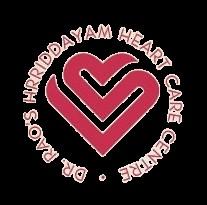












Too many lipids (fats) in the blood, often known as high cholesterol, can cause health problems. Hyperlipidaemia or hypercholesterolemia are alternative names for this condition.


The optimum amount of lipids is essential for your body's proper functioning. Too many lipids are problematic since the body cannot utilise them all. Your artery walls begin to harden due to excess lipids. They build plaque with other molecules in your blood.
Even if this plaque doesn't create any symptoms for many years, it's still slowly growing inside your arteries, which might lead to severe complications. Therefore, the dangers of high cholesterol cannot be overstated if the condition is left untreated. Subtly, the increased fatty levels in your blood contribute to plaque growth. Therefore, only a blood test can reveal whether or not your cholesterol levels are too high.
Cardiovascular disease is more likely in those with high cholesterol levels. Heart disease, stroke, and vascular disease in the extremities are all examples. Both diabetes and hypertension have been linked to elevated cholesterol levels. The accumulation of fatty plaques in arterial walls due to elevated cholesterol levels is the root cause of all these conditions.
Consult your physician for advice on how to avoid or deal with these issues. If you want to reduce your cholesterol and hence your risk of developing these diseases, you can do so by following a few easy recommendations.


A heart attack is the leading cause of death in those with excessive cholesterol levels. Too much cholesterol in the bloodstream can lead to deposits along the arterial walls. Eventually, this plaque buildup leads to atherosclerosis or hardening of the arteries. Focal constriction of the arteries supplying the heart can reduce blood flow to a section of the heart muscle. Or, pieces of cholesterol plaque detach and float to more delicate blood arteries, where they block them in part or whole. Inflammatory cells may migrate to the site of the plaque rupture and limit the area there as well. Angina, or chest pain, can occur when blood flow is restricted, and a heart attack can occur when a blood artery entirely closes off.
Cholesterol plaques constrict not just the arteries that supply blood to the heart and circulatory system as a whole but also certain of the arteries that supply blood to the brain. A stroke can occur if blood flow to the brain is suddenly cut off.
Cholesterol plaque can also produce symptoms in places besides the heart and brain. Feet and legs are the most common body parts to lose.
Occasionally, you may get walking-related calf cramps, which typically subside after a short period of rest. The symptoms are similar to angina, except the affected area is the leg.



High-density lipoprotein (HDL) and low-density lipoprotein (LDL) levels might become unbalanced due to diabetes. Those with diabetes are more likely to have LDL particles that are sticky and cause damage to the artery walls. Sugar (glucose) binds to lipoproteins (a cholesterol-protein package that enables cholesterol to travel through the blood). To a greater extent, sugary LDL may contribute to plaque formation since it stays in circulation for longer. Low levels of HDL and elevated triglyceride levels are both common in people with diabetes, especially those with type 2. This doubles the danger of developing coronary artery disease.

Hypertension (high blood pressure) seems to be connected to cholesterol levels, but medical professionals are still investigating the specific mechanism. Having a high cholesterol level appears to produce inflammation and the release of specific hormones, both of which cause the blood vessels to contract, increasing blood pressure. Endothelial dysfunction is the term medical professionals use to describe this abnormal behaviour in blood vessels. Furthermore, cardiovascular illness is associated with hypertension.



A guy with erectile dysfunction struggles to get or keep an erection. Over time, excessive cholesterol appears to cause a constriction of the penis's smaller blood arteries, which, under normal circumstances, would dilate to supply more blood for an erection (endothelial dysfunction again). As an added risk, high LDL cholesterol levels can accumulate in the arteries and eventually combine with other chemicals to form plaque, which hardens and narrows the blood vessel wall (atherosclerosis). Reduced blood supply to the heart and penis can result, which in turn might cause erection problems.


